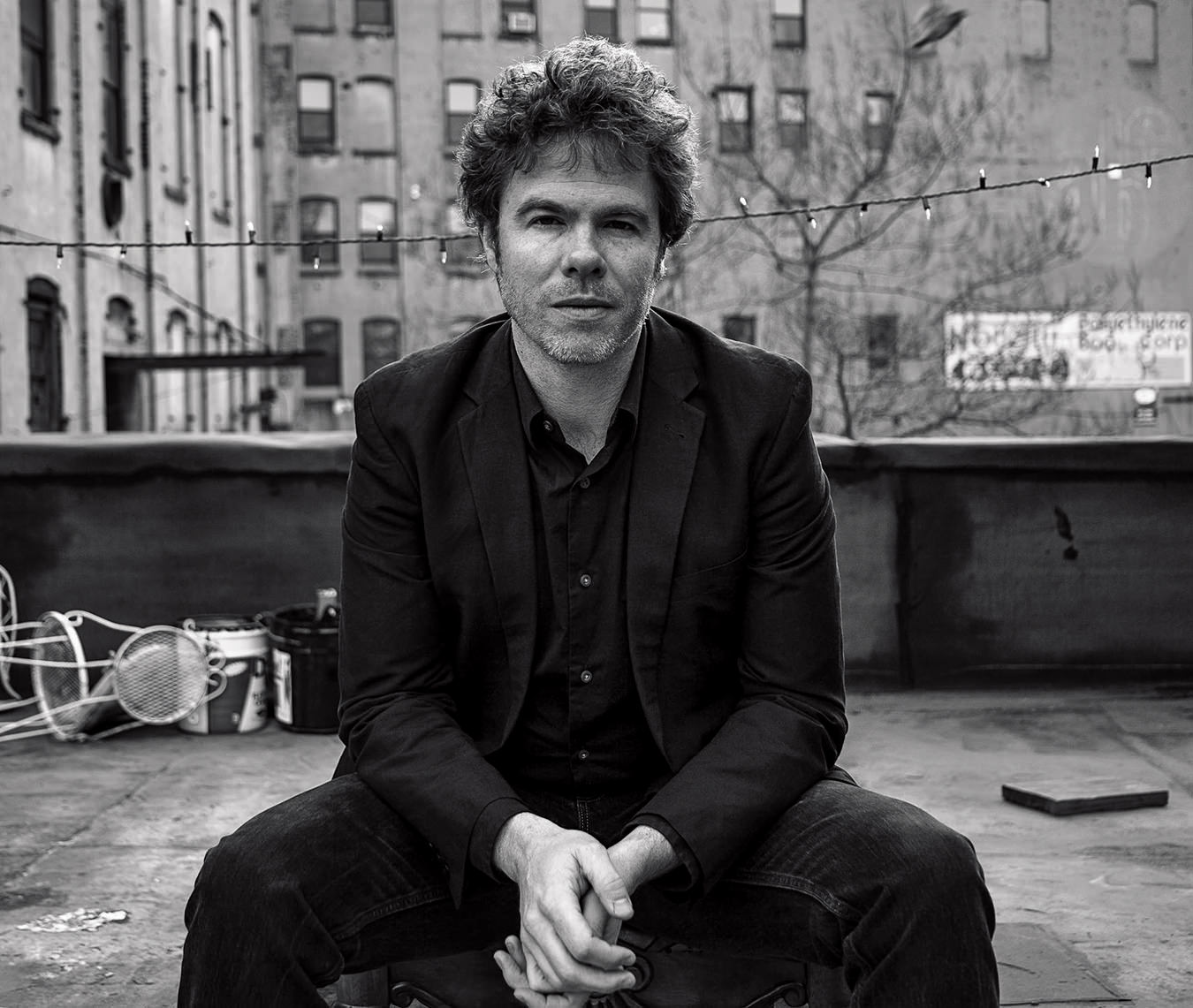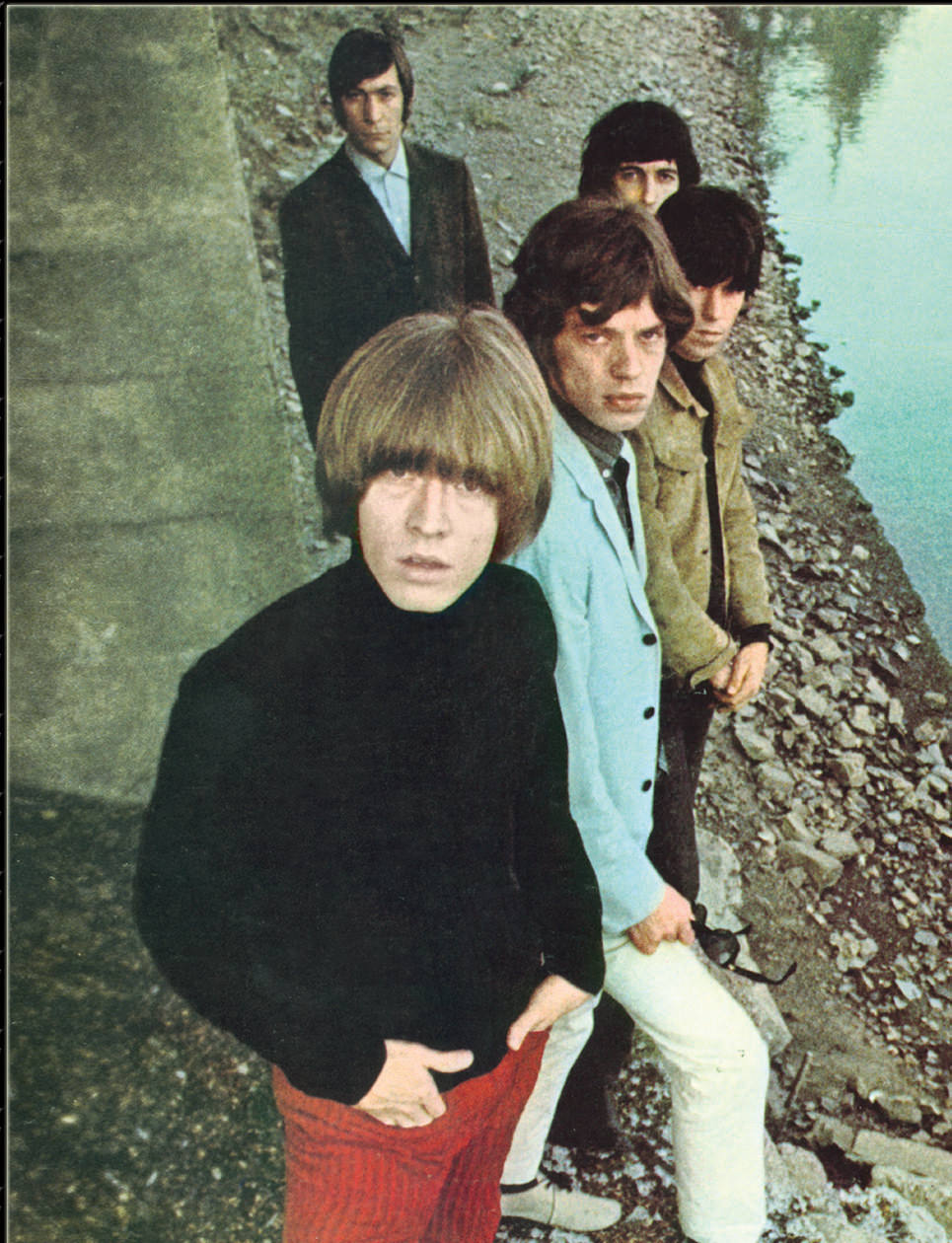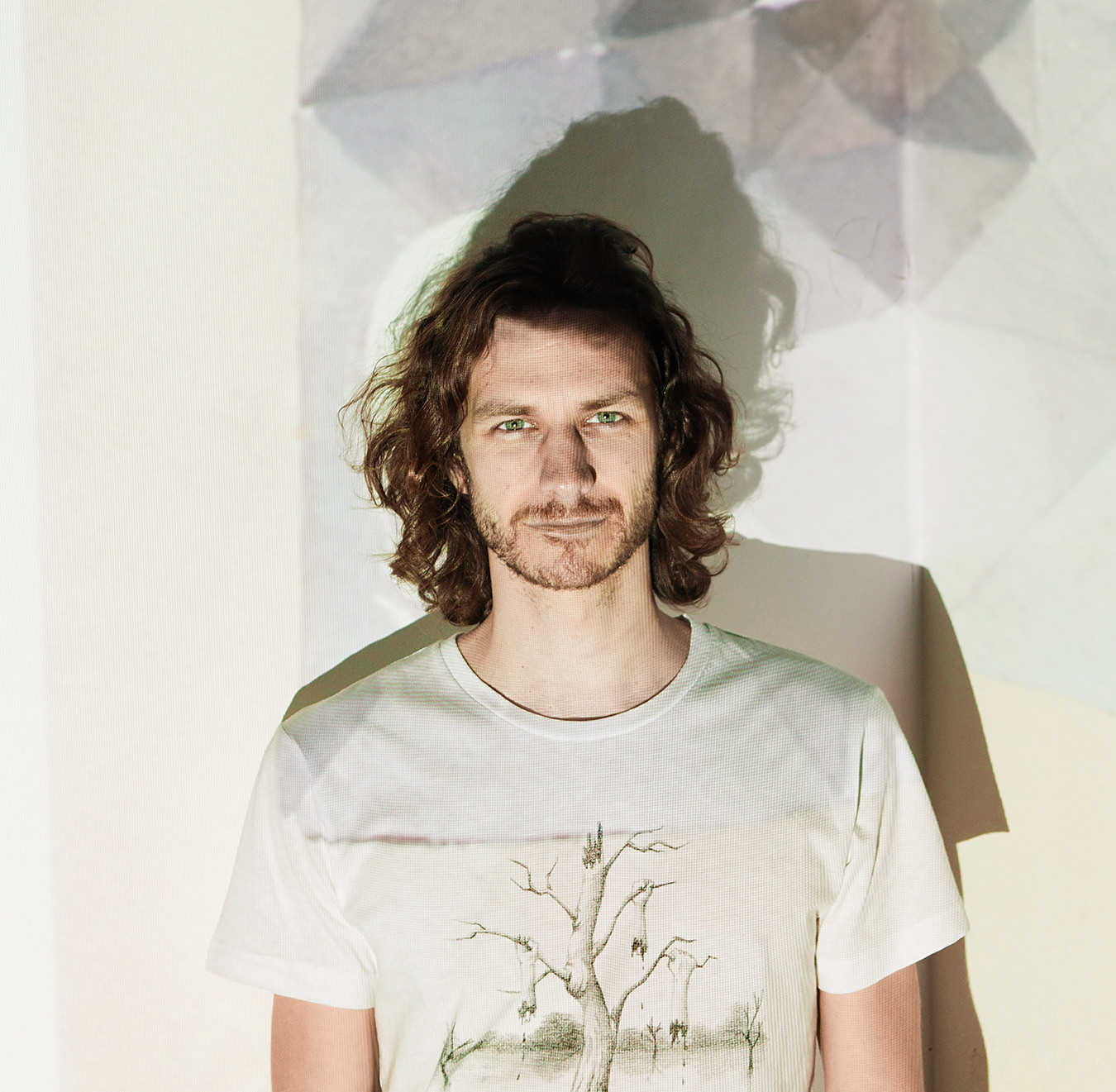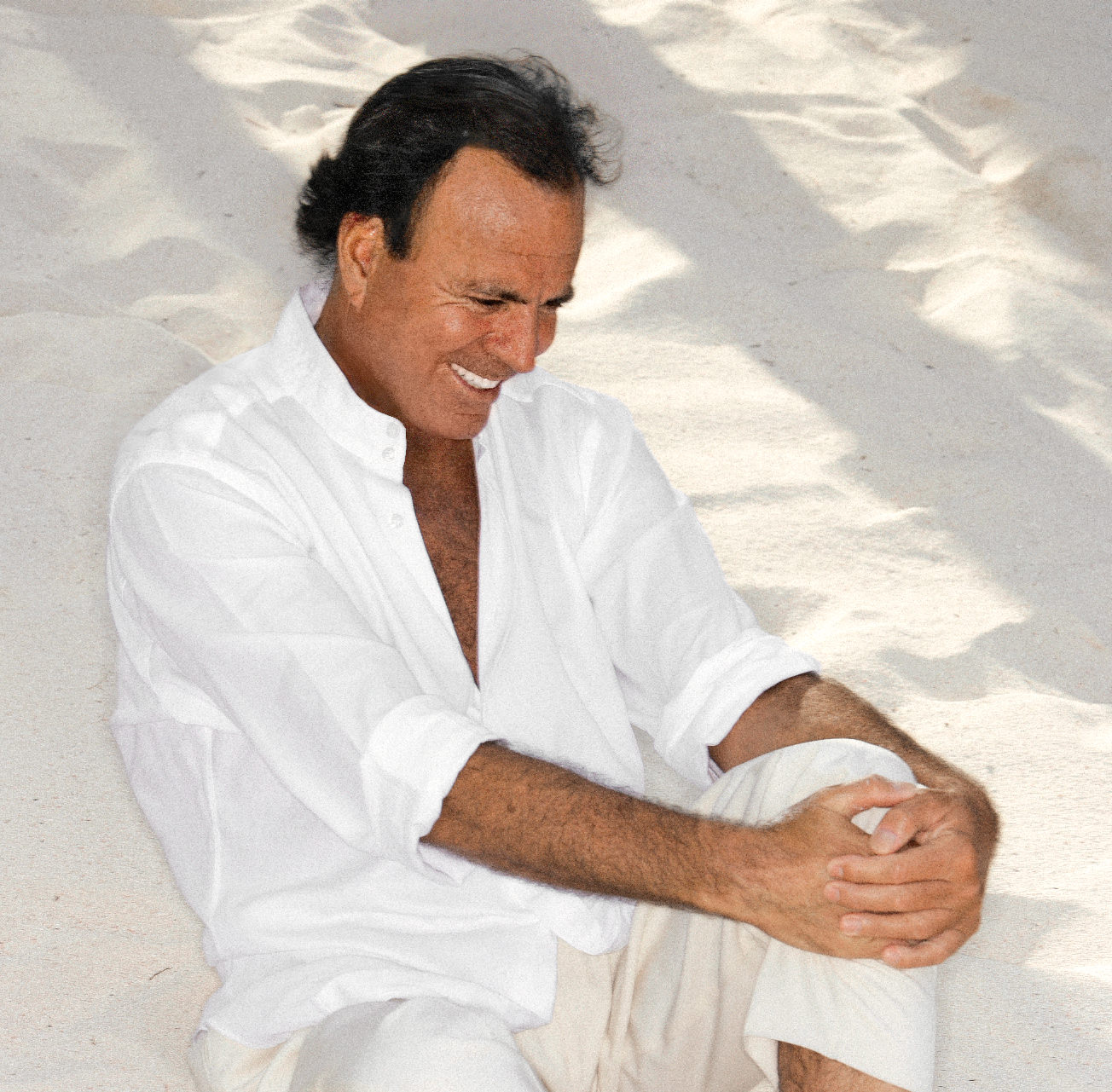At Home With Basia Bulat
A shift of perspective.
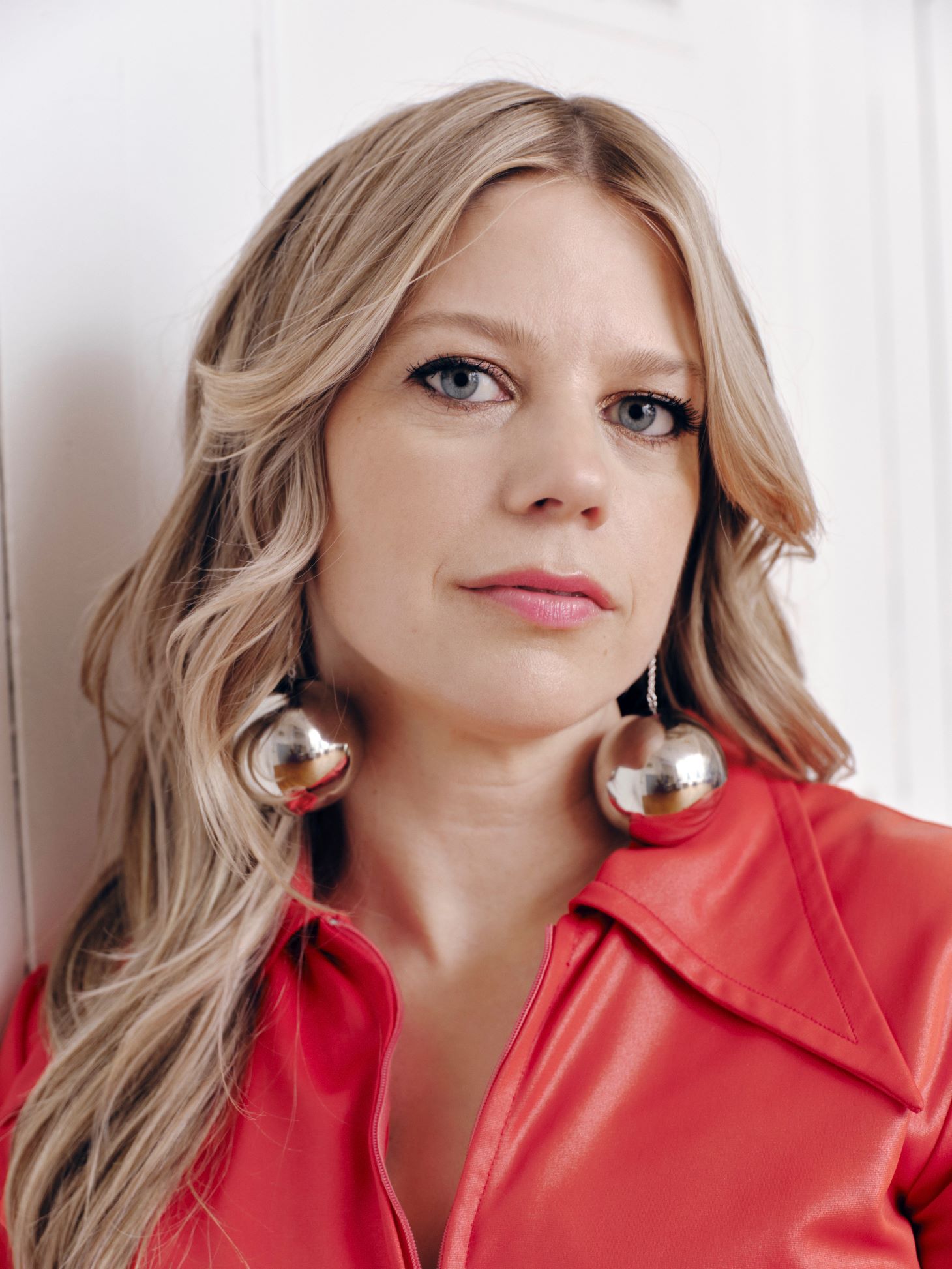
Family and home can mean and feel like many different things. For Basia Bulat, they’re one and the same. Her parents and Polish heritage. Her husband and two daughters and their house in Montreal. Her touring family. Her music. The songwriter and musician’s new album, Basia’s Palace, bridges all of these worlds and their perspectives—it’s not a coincidence the working title for the record was actually Family.
When NUVO calls, Bulat is enjoying a few days off from the road, taking time for herself and to be with her family. She’s been performing all around North America since the beginning of the year, and she tours through Europe and the U.K. this summer. Her children—one is just getting over a cold—are off-camera in the background, and Bulat breezes through different rooms tending to them as needed. This is life—her house, her home, the heart of where everything happens—and this is where she made this album, in the middle of the night.
“At first, it was just a happy accident,” she says of her late-night creative process, which she snuck in around the sleep schedules of her babies. In those bleary hours, when everything is a little surreal, “you can get really real with yourself and your emotions,” she continues, “because no one else is there. You have no one to put the show face, the game face, on for.”
It then became the first time in a while she’d really allowed herself to sit in the stillness. “I just travelled so much. I tour a lot. I like being social. I like going to shows. I like doing stuff. And sometimes, I just never stop finding ways to fill the empty space,” she admits. “And this was really like, okay, now there’s no one here but me, and there’s no need to fill the empty space. What’s going to come up?”
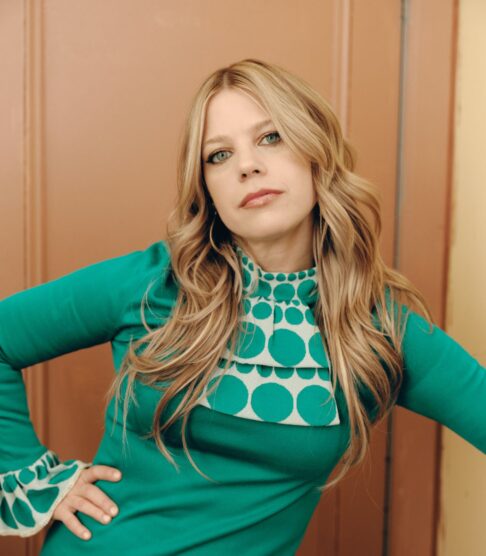
The basement, where she wrote many of the songs, has a 1970s cabin feel to it, not unlike the basement of her mother’s house where, when she was growing up, Bulat would also retreat to and write. Now, in her own basement, there are strings of colourful twinkly lights and vintage mirrors hung on walls embossed with stone and wood. It feels warm and lived-in and magical.
“There’s something about going underground—kind of going into this different state of mind,” she muses. “You kind of connect to your old self and the spirit world, once you allow yourself to just get out of your own head.”
Once downstairs, Bulat would put her headphones on and start creating soundscapes on a MIDI player. The MIDIs were initially meant to be just demos, but “they ended up having this authenticity to the spirit of the moment that I couldn’t let go of after it was done,” she says. She kept almost all of them. Electronic beats pulse and strings shimmer on “My Angel” as Bulat sings about a kind of love that contains multitudes, whether love-at-first-sight for her daughters or the love for chosen family. “Laughter,” which feels kaleidoscopic and joyful, is a “poetic memory” of a day she spent with her children, watching them be completely themselves, free from any kind of judgement or self-criticism.
___
“Halfway through the song,” she notes, “I catch myself trying to judge myself when I need to look for softness, because I need to treat myself the way that I want to treat my daughters, the way I want someone to treat them. I want them to treat themselves sweet. I have to model it for them.”
“Disco Polo,” which features Bulat singing lines in Polish, is named for her father’s favourite genre of music, a Polish style that blends dance and folk. “Everyone in Poland says they hate this music, but they know all the words to every song, and it’s played at every wedding,” Bulat says with a laugh. She adds that, as a child, she also disliked it immensely, but after her father passed away, and especially because they had a complicated relationship, she found herself looking for him in those songs and becoming charmed by them. Her song, she says, “was this way of trying to put the happy memories with the sad memories together.… It just felt like the way to kind of reconcile everything—and,” she adds, “realize that I’m a little bit folky, but I’m a little bit disco polo, too.”
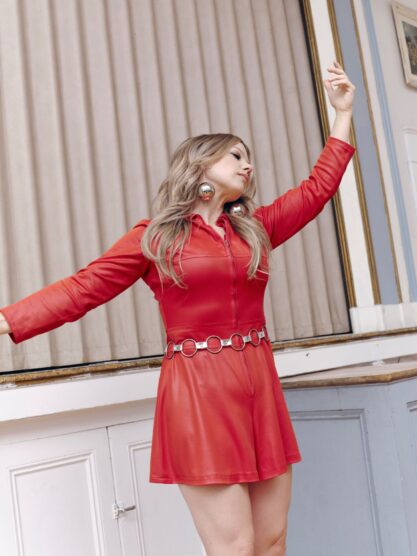
A vintage 1979 Polish drum machine is featured all over Basia’s Palace, adding character and meaning to the album’s dreamy sound. Strings that Bulat envisioned to move like the wind further bring everything to life. Drew Jurecka, who wrote, arranged, and performed them, completely understood the feeling Bulat was after. “It really felt like what he did was as if this breeze was flying through the different songs—like as if the album was this house, this palace—and the windows are open and the strings are the breeze flowing through.”
One of the most profound moments comes in the final track, “Curtain Call.” A low strum and gentle swell of background instrumentation progresses into a triumphant key change and swirling electronics. It’s the song Bulat thinks sounds most like the place where songs come from, “that three-in-the-morning feeling.” She recorded the album both in the studio her husband built in their basement and at her Mile End jam space, and she could usually only track if her girls were asleep in their stroller (when recording “Curtain Call,” though, she happened to have child care). Her voice here, in contrast to being beautifully soft and smoky throughout the album (to capture the feeling of singing lullabies), reaches full, throaty power as if she’s onstage. Lyrics like “I used to be afraid of endings / I made the empty stage my friend / And let myself be born again / With every line of every single song” act like a letter to Bulat’s future self: a reminder to embrace the present moment whenever she finds herself doubting her capabilities as an artist, a parent, a friend, a person. A reminder to hold onto the raw and powerful feeling that arrives at the end of a performance, when all the layers are stripped away—or perhaps that also takes over when writing songs in the middle of the night.
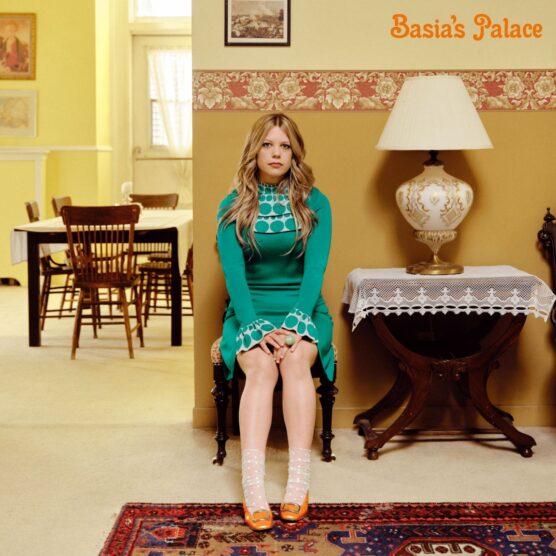
It’s a shift of perspective that began with her last album, 2022’s The Garden, and continues on Basia’s Palace, in how Bulat expresses herself differently and finds new understandings. Making this album has changed the way she meets the present moment, in releasing attachment and letting playfulness take over. That’s where the creativity kicks in, she says.
“I think I allow for the mess of life. Just embracing all the mess that you inherit: for good and for bad, artistically, spiritually, family. There’s a lot to untangle. We may not get it all done. We’ll try our best.”
Bulat leans back into her plush sofa in the basement, surrounded by twinkly lights and toys and the bustle of her children. “That’s the perspective I have,” she continues, with a smile. “I hope I can keep it up.”
Portrait photographs by Richmond Lam.

